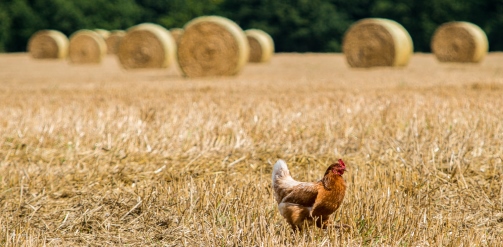With food poverty, obesity and diabetes on the rise all over the world, today of all days, World Food Day, reminds us that our food systems are not fit for purpose. There is a need for an urgent rethink on how we produce, transport and consume food. As part of the Transitions to Agroecological Food Systems project, UK farmers give their insights on how we can move to a fairer and more sustainable food system.

Is Brexit an opportunity?
Charlotte Oliver, part of a Low-Impact Permaculture Community in Devon noted that ‘Brexit offers a possibility for a major rethink for how the farming sector goes about providing food. There is an opportunity to increase our food sovereignty and for a broad cultural change on the status and value given to food and its production’.
‘It seems that questions are being raised about whether we want to have a systems that either relies on cheap imports and preserve the countryside for mostly amenity value or conservation value or whether we have a working countryside where can shorten the food chains between the farmer and the consumer.’
More choice and cheaper food?
Richard Fox, an organic farmer from Somerset explained ‘food relative to everything else has become cheaper and cheaper year by year’. Richard argued that in a society where the food supply is pretty secure, there has been an increasing expectation for a wide variety of ingredients to be available but at affordable prices. This requires a very complex supermarket, supply chain with global input.
With the global supply chain, the import of food from abroad is an anomaly according Richard. He explained that the cost of transporting produce is not accounted for when it comes to selling food. This keeps the prices low, and pushes local producers out of the picture. Richard stated ‘Long distance transportation seems to be free, yet it’s not free when I want to travel around the world, but it’s free for a tonne of carrots to travel a thousand miles, the cost is much lower than producing them here’.
Bringing communities and food together
Jane Sweetman, a co-director at a Community Supported Agriculture (CSA) Initiative highlighted that what is missing currently in the food system is that ‘there is no connectedness between all these different facets of food’. Janes emphasised that her background has always been in growing food and the keeping of livestock alongside that and working with communities in various different ways. ‘We are growing and distributing boxes of vegetables with Community Supported Agriculture (CSA), we’re growing for soil and human health and community wealth’.
To move forward, she explained that we need to work with policymakers and change makers ‘to influence the food system now and to work with it for the better health of everybody.’ Health means, as Jane notes, ‘social, economic and ecological health across the board, there is no more important thing than the way we produce, share and distribute our food’.
—
This is the second in a series of blog posts the will share evolving strategies for transforming our food systems, focusing on markets, land and finance. All the blog posts will be shared on Transitions to Agroecological Food Systems.
Photo credit: Mark Seton/Flickr – Clucking Harvest